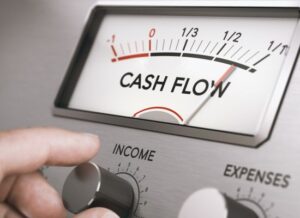
The global wide push to “go green” has built momentum over the years, and research points toward an even greater increase in the American demand for clean energy going forward. While the movement has primarily centered around the adoption of electric vehicles, the clean energy trend isn’t just lucrative for car sales. There are myriad attractive clean energy initiatives that could result in significant tax savings for your auto dealership.
While many clean energy initiatives have come and gone over the years, it’s worth looking at some of the most beneficial tax savings you can leverage today.
What’s driving the electrical vehicle trend?
The Biden administration has made it clear green initiatives will remain a part of its legislative goals. Despite the Senate’s pushback on many of President Biden’s initiatives, his recent Infrastructure and Investment Jobs Act (IIJA) and enhanced fuel-economy standards demonstrate an effort to make electric vehicles at least account for half of all cars and trucks by 2030. That includes:
- A goal of reaching net-zero greenhouse gas emission by 2050;
- A $5 billion nationwide network of charging stations throughout the country included in the$1 trillion IIJA signed in November 2021; and
- Raising mileage standards starting in the 2023 model year, with a target of reaching 40 miles per gallon by 2026.
Research shows demand for electric vehicles is steadily increasing. For example, despite a global decline in car sales because of COVID-19, electric vehicle sales in the United States rose nearly 200% between the second quarters of 2020 and 2021.
Electric vehicle tax credit
Even though the Electric Vehicle tax credit is geared toward the purchaser, it’s worth noting this tax incentive continues to attract consumers to dealerships. Therefore, it’s essential to understand the credit and its limitations for your customers.
The credit only applies to the original owner of a new vehicle and does not extend to used cars, leases, or transfers to family members. The credit ranges from $2,500 to a maximum of $7,500, depending on the vehicle size and battery capacities.
To qualify, the vehicle must:
- Have at least four wheels and a gross vehicle weight of less than 14,000 pounds.
- Draw energy from a battery with at least 4 kWh hours and recharge from an external source. Each additional kWh can increase the amount of credit.
- Be purchased new in or after 2010 and put in use in the year claiming the credit.
- Be primarily used in the U.S.
The credit is not available for all models because the phaseout rules are dependent on the manufacturer’s sales. Once a qualified manufacturer sells 200,000 (cumulative as of 2010, not per year) qualifying vehicles, the credit value is cut in half. Once it hits 400,000, the credit is halved again, and at 600,000, it is eliminated. As of today, Tesla and General Motors (Chevy, GMC, Buick, and Cadillac) have both surpassed this threshold and are not eligible.
Solar panels
The Investment Tax Credit remains has led many dealerships to install a solar panel system at their facilities. Congress extended the 26% tax credit rate in December 2020 so long as the solar panel system is under construction by 2022 and in service by the end of 2025. The tax credit will drop to 10% once the extension expires.
While solar energy may seem like a hefty investment, auto dealerships, specifically, have reported substantial expected cost savings. Most commercial-grade solar energy systems are expected to last 40 years, equaling four decades of operational savings on expenses such as lights, air conditioning and heating, computer systems, Wi-Fi, and more.
Section 179D
The 179D deduction is another incentive for auto dealerships looking to make their commercial space more energy efficient. The up-to $1.80-per-square-foot tax deduction applies to new construction and improved buildings that meet certain criteria set forth by the American Society of Heating, Refrigerating, and Air Conditioning Engineers (ASHRAE).
The credit is calculated by the square footage of the building and the installation of three energy-efficient categories:
- interior lighting
- a building envelope
- heating, cooling, ventilation, and hot water systems.
If the combined impact of these three categories equals a reduction of 50% in total annual energy and power costs, the building qualifies for the maximum deduction. The 179D tax deduction is a permanent addition to the United States tax code and does not expire.
The initiatives mentioned above are available on the federal level, so it’s essential to also consider your state’s specific clean energy incentives. To ensure you’re taking advantage of the most up-to-date tax benefits, contact our team a call to learn more about how your dealership can leverage these opportunities.
Please contact John Comunale via our online contact form for more information.
Councilor, Buchanan & Mitchell (CBM) is a professional services firm delivering tax, accounting and business advisory expertise throughout the Mid-Atlantic region from offices in Bethesda, MD and Washington, DC.



